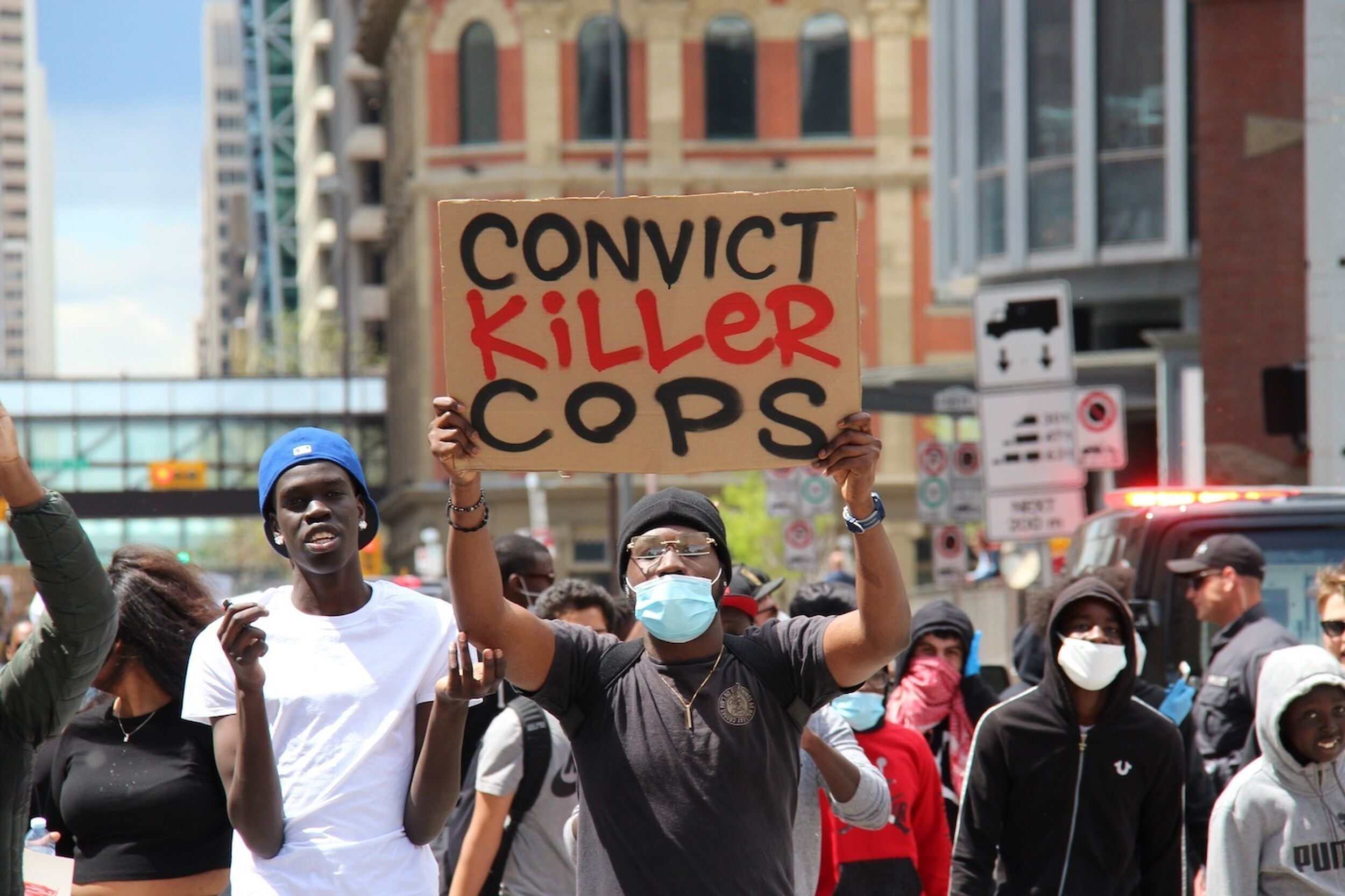
Black Lives Matter protesters march down 6 Ave S.E. on June 1. Photo: Jeremy Klaszus
‘Tired of empty words’: Calgarians urged to act against racism
Don’t just say something — do something.
As downtown Calgary surged with people chanting “Black Lives Matter” and “no racist police," Black Calgarians urged those gathered to begin a long overdue conversation on racism in the city—and to do more than post on social media.
Shu Porter, one of the rally’s organizers, stood in front of city hall with a megaphone and surveyed the thousand-plus people who were packed in the civic plaza and down Stephen Avenue after marching from East Village.
“This day here, what I’m seeing, it gives me a bittersweet feeling,” Porter told the crowd.
“You know why it gives me a bittersweet feeling? Because where was this when Trayvon Martin died? Last week, when Ahmaud [Arbery] died? When Breonna Taylor died?” continued Porter, naming Black Americans who were killed.
“Where was this? Why did it take for it to be sensationalized on Instagram for you to want to come and join us?”
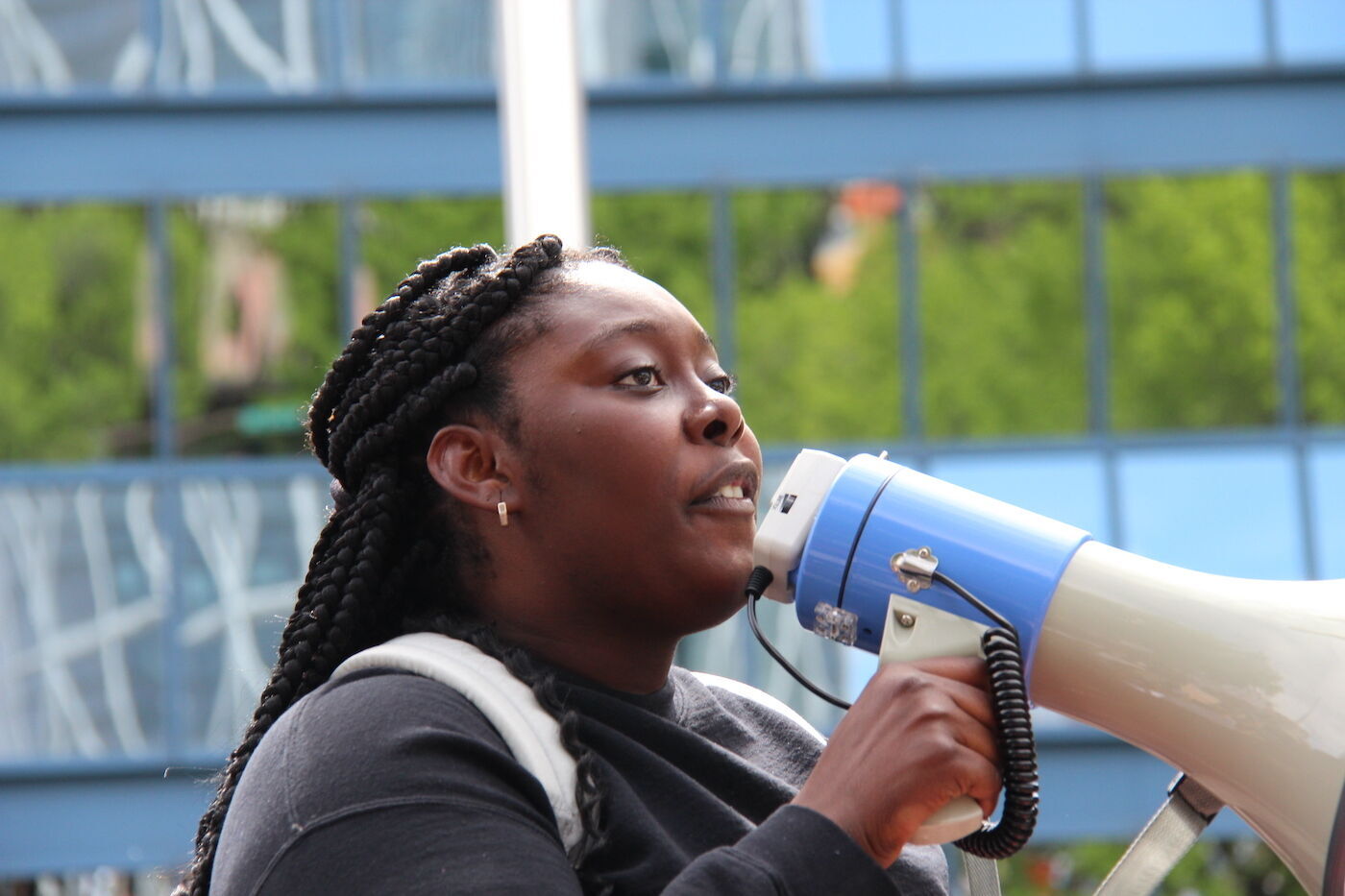
Another organizer, Uba Anya, ascribed the massive crowd to the fact that police have still been killing Black people during a pandemic, when people are supposed to be calmly isolating at home.
“People are still putting their knees on other human beings and killing them at a time like this,” said Anya, referring to the killing of George Floyd in Minneapolis in May.
“So I think this has rung a bell in people’s lives—to understand that this is real. This could be me. And this is not fair.”
“It’s wrong what’s been happening in the U.S.," said Anya. "We’re not as bad as the U.S is—Canada hasn’t gotten to that stage yet—but we’ve got to put our foot down to ensure that we keep equality and justice alive in this country.”
Why did it take for it to be sensationalized on Instagram for you to want to come and join us?
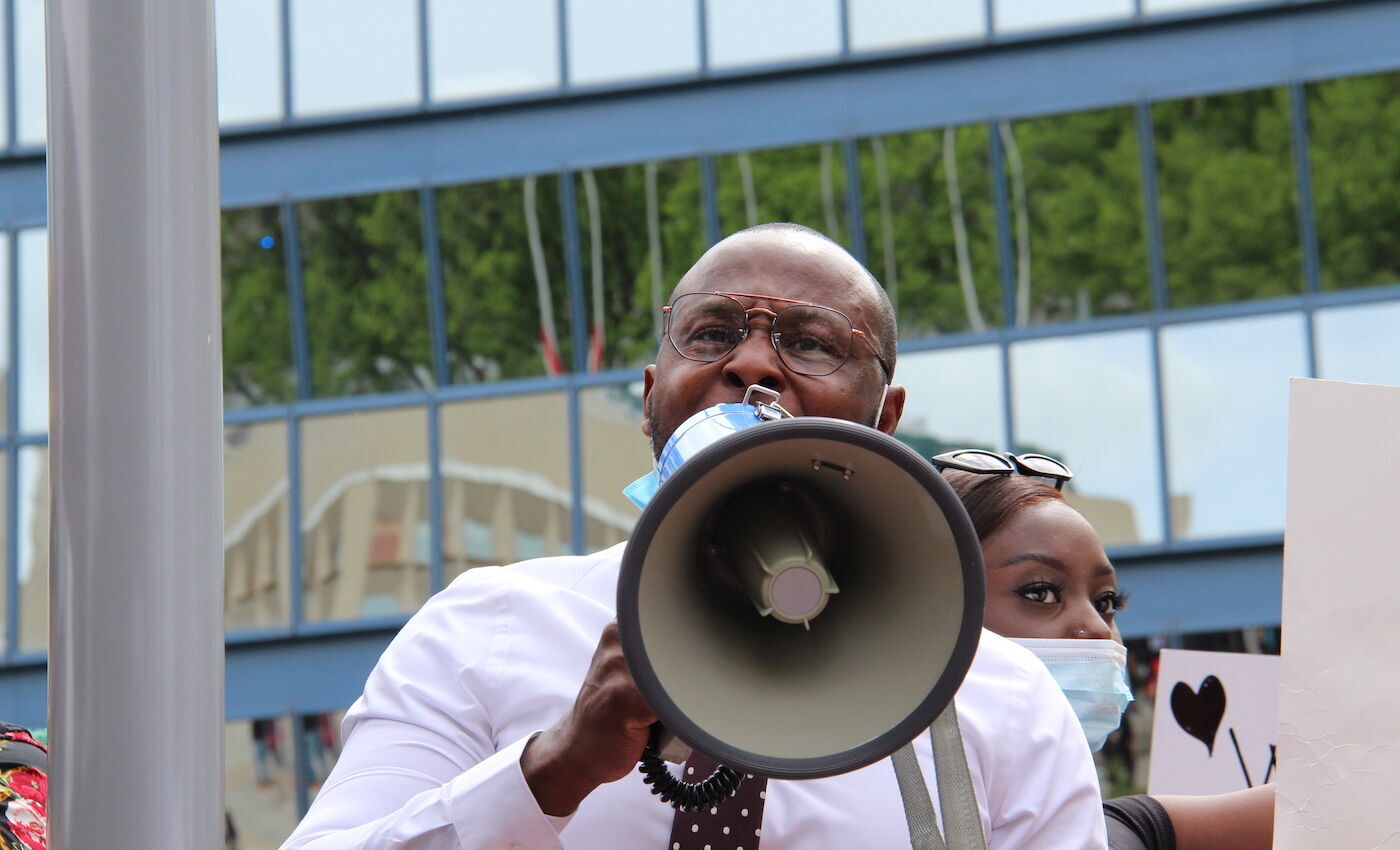
Another speaker, fully masked, described experiencing racism from co-workers, teachers and hockey teammates—and being punched and pulled over by Calgary cops for no reason.
Porter urged Calgarians to address the racism in their own homes, workplaces and relationships.
“Don’t just say something—do something,” said Porter.
“We are tired of empty words. We are tired of you posting this on your social media... When this rally ends, when this protest ends, and you go back to your comfortable houses, and you go back to your comfortable jobs—and you see oppression in the workplace, and you see oppression in society, you say nothing.”
“You guys want justice? You guys want peace? You have to be realistic about the struggle and about the oppression that we fight daily. Do not wait until another Black man is killed. Do not wait until another Black woman is killed.”
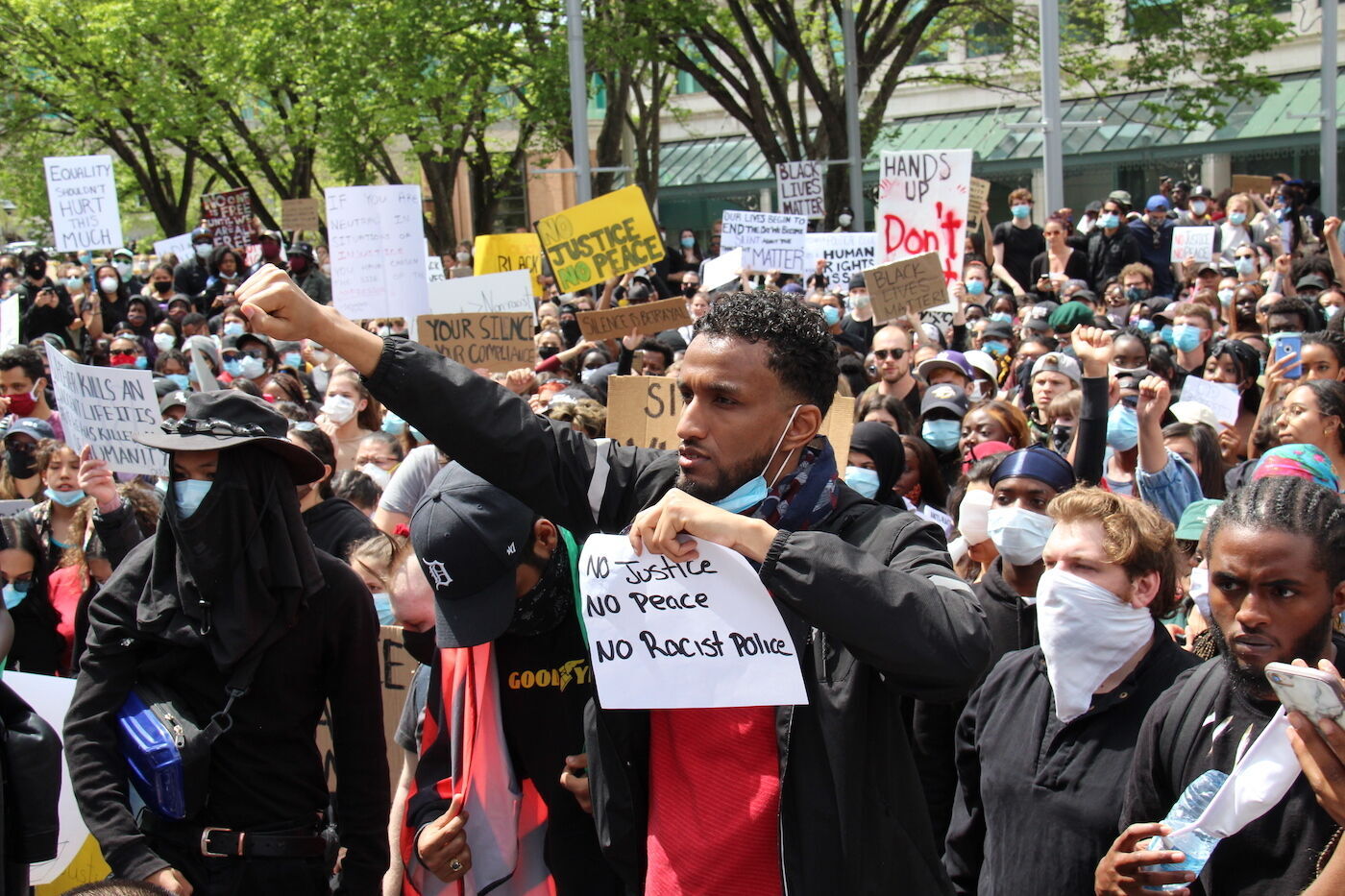
As the crowd listened to the experiences of Black Calgarians, a theme emerged—this is not just an “American problem.”
Some protesters cited Canada’s colonial history and the ethnic cleansing of Indigenous people. Others took to the steps of city hall to voice what the Black experience is truly like in Canada—underreported and overlooked by whitewashed Canadian journalism.
Here’s what some of the rally attendees had to say. Comments have been lightly edited for brevity.
Ebun Dewole
I didn't expect to see so many people here. Black people are a minority in Canada, so it was awesome seeing so many different races here to support us.
I lived in America for over a decade. I moved here not long ago, and I feel like they try so hard to pretend that racism doesn't exist here.
We've seen the way they treat Indigenous people and how they continue to treat Indigenous people. And me personally, I have some instances [of racism] in Canada as well, and I think they believe they're accepting—but honestly, it can happen everywhere.
There's a lot of microaggressions. I've had little comments like, “Oh, you're so pretty for a Black girl.”
It's still the same kind of pain, the same kind of insult.

David Oden
I wear a durag to lay my hair down. I like to shop at Hugo Boss and I wear tracksuits. And just with the way I dress, people always assume I'm a threat—I'm a drug dealer or something, and I literally work in oil and gas.
Racism is not as blatant as it is in the States, but it is very evident.
And that's just because it's not out in the open. In the States, a white woman would tell you 'fuck you' to your face. In Canada, it'll be something like they're walking out of an apartment building and closing the door behind them because they don't want a person of colour to enter inside an apartment building.
Shit is not going to stop until change happens all over the world—and if they think it's just going to go away this time without actually giving justice for George Floyd, I can tell you it's not. Black lives matter.
Okwuchi Emerolnro
There's an underlying issue. People's families were kidnapped from Africa, stripped of their names, their identity, their religion.
Anybody who came to Canada came out of migration. But at the end of the day, Canada is not necessarily innocent because look at our Indigenous issues.
I'm glad to see that people are actually aware that police brutality is a thing. It started from way back from slavery. It's perpetuated through oppression and segregation. So it's good to see that [these are] people who have educated themselves to some degree.
What we can actually learn from this is widespread—like let's look within ourselves and really address the problem.
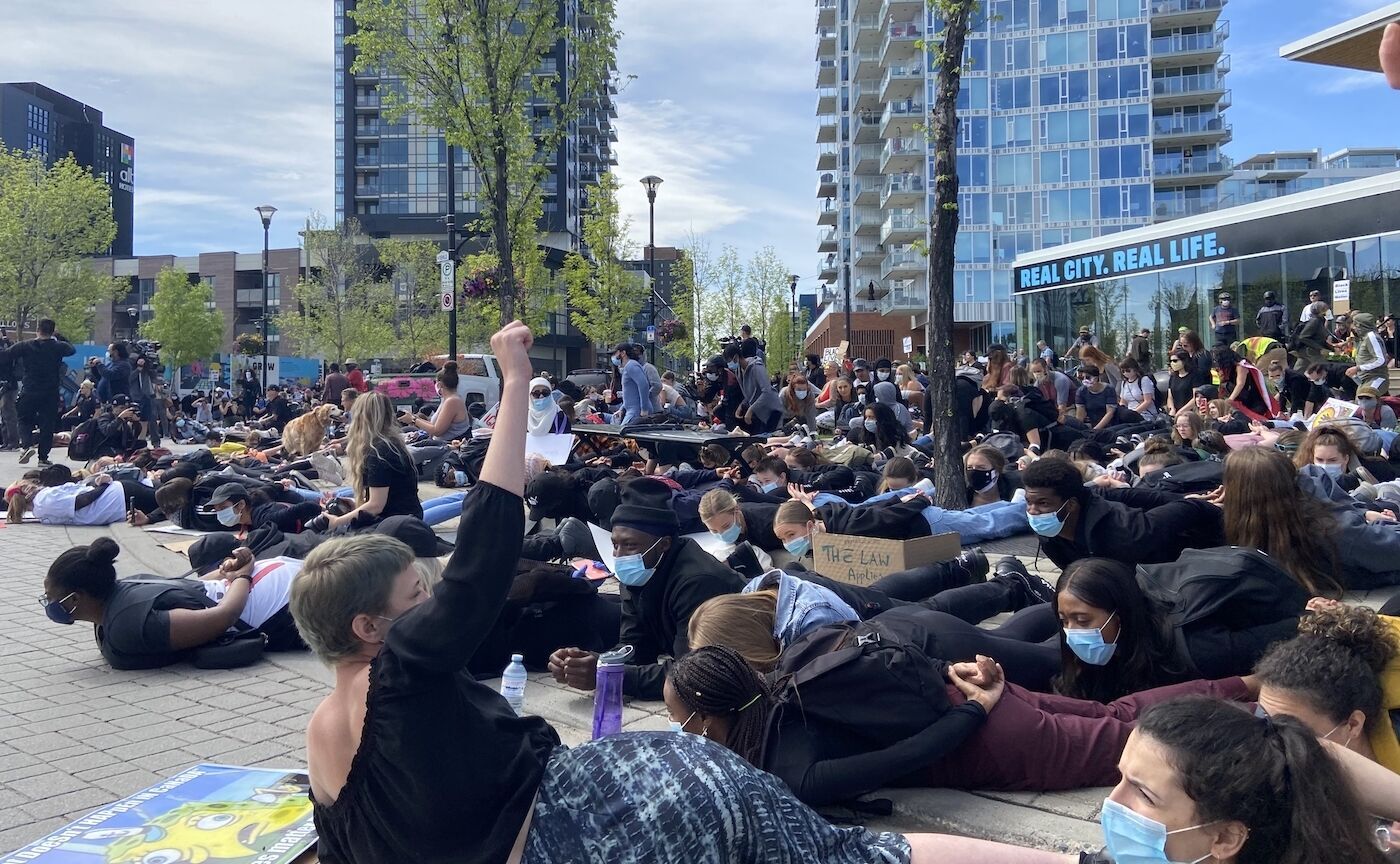
Mawa Khalid
Canada has this identity where they think just because they're not blatant or very vocal in their racism that it doesn't occur. And in fact, if you look at Indigenous people in Canada, you know how racist Canada can be in itself.
For those who say that Black lives don't matter, that racism doesn't exist, I would say take a look at your privilege, take a closer look at those who are struggling around you and interview actual Black people and speak to them and ask them what their experience is here.
What we know and what we can see from this gathering in itself, it's the fact that Black lives matter. Racism is an issue in Canada, and it's an issue worldwide. And this is our show for solidarity, wherever it is.
I never expected such a turnout from such a diverse group of people. Everyone came out and they showed their allegiance with the Black community.
Adam Tittley
I'm a white cisgendered man. I don't know what it's like to walk down the street and be afraid because of the colour of my skin. I don't know what it's like to be a Black or Indigenous or brown person. I do know what it's like to be afraid as a gay man.
I've been sitting a lot over the last couple of months with the state of the world and thinking all we need to do is take care of each other. And so I'm here to bear witness as to what's actually going on and to lend my support.
If somebody doesn't believe it or doesn't see it, then I invite you to step out and have a conversation, get uncomfortable, sit in that discomfort and see how you might be able to learn and grow—because the reality is, this shit's real and it's here.
I'm trying to sit in the discomfort and I'm trying to listen before I speak because there's a whole lot that I don't know. And I won't grow if I don't listen.
Hadeel Abdel-Nabi is The Sprawl’s staff writer intern. Jeremy Klaszus is editor of The Sprawl.
Now more than ever, we need strong independent journalism in Alberta. That's what The Sprawl is here for! When you become a Sprawl member, it means our writers, cartoonists and photographers can do more of the journalism we need right now. Become a Sprawl member today!
Support independent Calgary journalism!
Sign Me Up!The Sprawl connects Calgarians with their city through in-depth, curiosity-driven journalism. But we can't do it alone. If you value our work, support The Sprawl so we can keep digging into municipal issues in Calgary!




